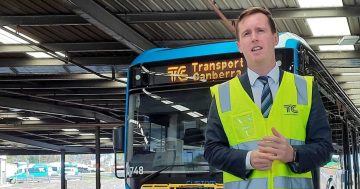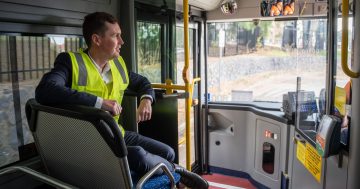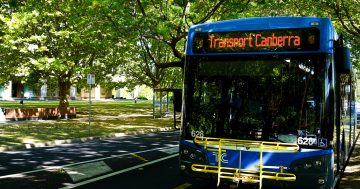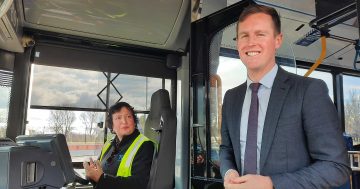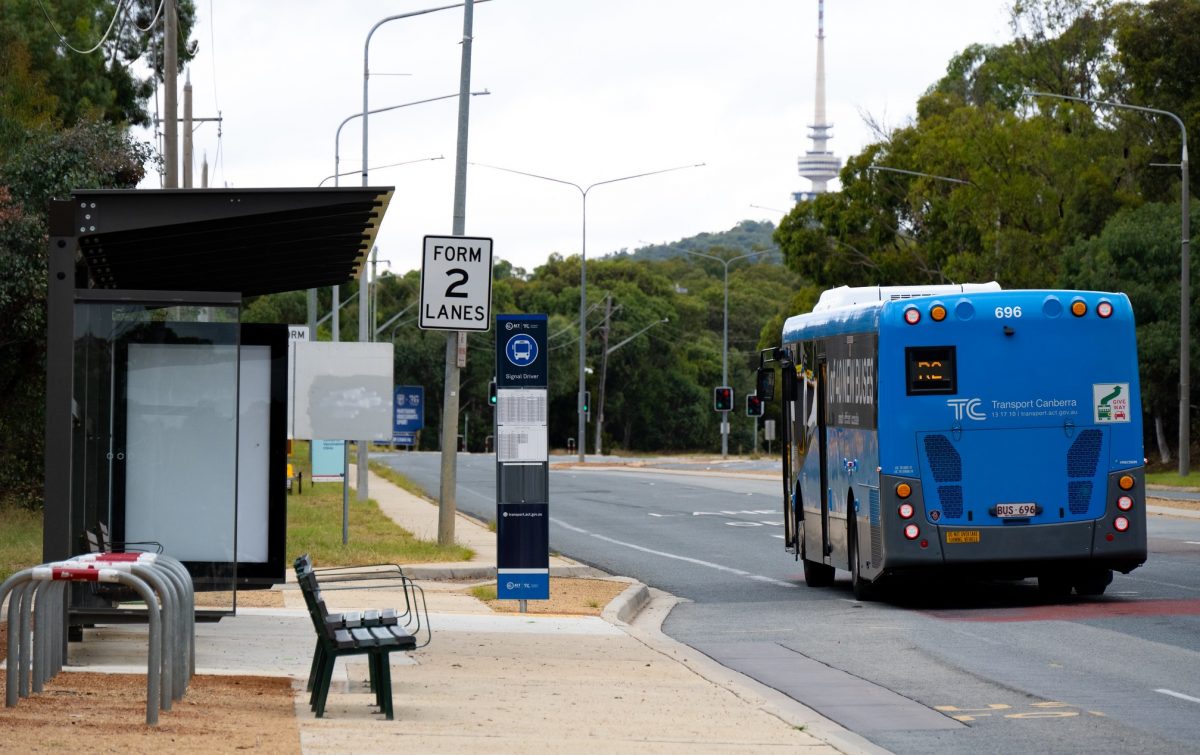
Bus drivers voted to accept a new pay deal as part of their enterprise bargaining agreement but rejected what was offered for weekend shifts. Photo: Transport Canberra Facebook.
The ACT Government won’t be able to organise extra weekend bus services anytime soon, with union drivers rejecting its offer to get more vehicles on the streets.
Transport Canberra bus drivers who are with the Transport Workers Union (TWU) voted on the ACT Government’s latest enterprise bargaining agreement on Thursday (25 May), which led to a suspension of bus services during the middle of the day.
The vote followed nearly a year’s worth of negotiations.
There were essentially two arms to what was put forward – a pay offer and a weekend package to boost weekend services.
The ACT Government originally reduced weekend services in 2019 because of the continued cancellation of buses due to a lack of available drivers.
TWU ACT sub-branch secretary Klaus Pinkus explained that most members voted yes to the pay deal, a 13.13 per cent increase over three years.
“It’s a complicated structure, but it was a combination of a dollar increase to the base rate and percentage increases as well to give lower paid drivers a greater increase,” he said.
The deal has resulted in a $1750 increase to the base rate, backdated to January of this year, with a one-off payment of $1250 (with casuals to receive their payment on a pro-rata basis).
This would increase the base salary (excluding superannuation) from $82,733 per annum, or $41.72 per hour, as of June 2022, to $93,592 per annum or $47.21 per hour by December 2025.
For those part of the superannuation scheme, a 0.5 per cent increase would kick in in 2025 with another increase of 0.25 per cent in 2026.
However, the offer around increasing weekend services was pushed back.
The government offered a two-year trial where all weekend work, once someone had worked 12 weekend days during the year, would attract a 15 per cent penalty.
It also proposed a new part-time weekend category, where ordinary hours would be limited to weekend work only and to a maximum of 15 shifts per depot. These shifts wouldn’t start before 12 pm, and part-time workers would have access to annual and personal leave on a pro-rata basis.
Transport Minister Chris Steel said these provisions were put forward to provide better incentives for drivers to work on the weekend.
“[The new ‘weekend worker’ classification] would have provided opportunities for new drivers and existing casual bus drivers to become permanent on the weekends, with more certainty of shifts and better entitlements including annual and personal leave,” he said.
However, Mr Pinkus described the government’s offer to boost the number of weekend drivers as “tokenistic”.
“If you pay them more, they will come,” he said.
Mr Pinkus explained there currently weren’t enough bus drivers rostered on during the week, which meant those currently employed were doing too much overtime to qualify for weekend work. The union felt even more needed to be offered to attract more drivers.
Mr Steel said work on this agreement had been proactive and positive, and the decisions from today would have no additional impacts on services, with the usual timetable to restart tomorrow (26 May).
“I am committed to continuing to work with our drivers on the next steps to pave the way for more frequent and reliable bus services for Canberrans in the future,” he said.
“This includes the recruitment of additional staff, which kicks off on the 29th of May next week.”
Seven new bus drivers graduated their training program today, with six more completing their training earlier this month.
The union meeting wasn’t solely devoted to voting on the enterprise bargaining agreement. Occupational violence was also high on the agenda and took up more than half of the meeting.
Mr Pinkus said bus drivers were being assaulted, spat on, sexually harassed and racially abused on a “daily basis”.
“Bus drivers are right up there as an occupation copping occupational violence,” he said.
Policies are currently in place to combat this, such as workplace violence protection orders and banning abusive passengers.
Screens have also been suggested to protect drivers, but opinions around those are mixed.
Mr Pinkus said the union wanted to see more enforcement when it came to protecting drivers from violence.
“The tools are there, so let’s use them,” he said.












